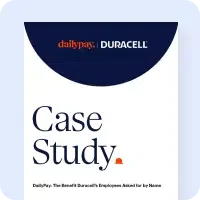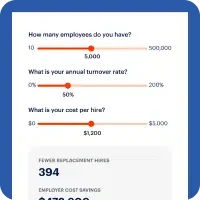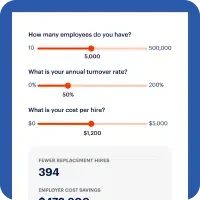The importance of an employee engagement strategy can’t be overstated. High employee engagement historically has lead to positive outcomes, including improved profitability, productivity, customer service, retention, safety and overall well-being.1
In short, employee engagement directly affects a company’s bottom line. Employees who are not engaged or who are actively disengaged cost $7.8 trillion globally in lost productivity, according to Gallup’s State of the Global Workplace: 2022 Report.2
Typically, employee engagement can be split into two categories:
- Engaged employees work with passion and feel a profound connection to their company. They drive innovation and move the organization forward.
- Disengaged employees are unhappy at work. They make their unhappiness known, too. Every day, these workers undermine what their engaged co-workers accomplish.
It’s likely you have a combination of both engaged and disengaged employees in your workforce. How are they impacting your bottom line?
What Are the Benefits of High Employee Engagement?
High employee engagement can lead to various positive outcomes including profitability, productivity, customer service, retention, safety and overall wellbeing.3
Improved Employee Retention
A positive employee experience may help employees feel valued, engaged and supported leading to better employee retention. A lack of advancement opportunities and feeling disrespected at work were among the top reasons why Americans left their job in 2021, according to a survey conducted by Pew Research Center.4
According to analysis conducted by Gallup, companies with highly engaged employees experience an 18% decrease in turnover for high-turnover companies and a 43% decrease in turnover for low-turnover companies.5 A high turnover rate can be costly for organizations, leading to excessive replacement hires and potential skills gaps.
Increased Workplace Morale
According to a 2021 survey conducted by Gallup, engaged employees are involved in and enthusiastic about their work and workplace.6 This increased involvement and enthusiasm may help contribute to a more positive workplace morale.
Greater Productivity
In addition to more consistent staffing levels and a more positive work atmosphere, companies with higher employee engagement can also expect stronger yields and outcomes.
According to the same Gallup survey, high employee engagement resulted in an 18% increase in productivity (sales).7
Greater Employee Financial Wellness
Increasing employee engagement will pay off for your employees. More engaged employees may lead to greater wellness, satisfaction and morale increases across your workplace. Simply put, they’ll be happier in their jobs and the investment will pay off.
When employees have greater financial literacy and control over their finances, that leads to better financial wellness.
This increase in financial wellness will reduce the likelihood of employees being overly concerned about their finances and give them more time and energy to focus on their jobs, leading to greater productivity and engagement.
How DailyPay Can Improve Employee Engagement
Employees using DailyPay are more likely to take advantage of on-demand pay benefits based on their personal financial situation. Your company could benefit from even higher engagement rates as a result.
Learn more about how the DailyPay Solution may improve employee engagement.
FAQs
-
What is employee engagement?
Employee engagement relates to an employee’s commitment to and connection to a company. | Learn more about employee engagement.
-
What do I do if my employee engagement is low and how can I improve employee engagement?
An employee engagement strategy powered by greater pay flexibility, improved benefits, training and rewards can help companies to increase employee engagement.
-
What are the benefits of increasing employee engagement?
Companies that increase employee engagement can experience higher employee retention, greater productivity, higher profitability and more.
-
How do you measure employee engagement?
Companies can measure employee engagement through surveys, employee engagement software and other employee engagement platforms or tools.
-
What are employee engagement platforms?
Employee engagement platforms are tools and software designed to improve employee engagement through feedback, surveys and other tracking tools.
-
What are the most effective employee engagement tools?
In addition to improved benefits, the most effective employee engagement tools often include tracking, messaging and survey tools to foster engagement and communication.
All information herein is for educational purposes only and should not be relied upon for any other use. The information herein does not constitute the rendering of financial advice or other professional advice by DailyPay. No fiduciary obligation or duty exists, or is created, between you and DailyPay. DailyPay does not warrant the completeness or accuracy of any information provided to you.
1 https://www.gallup.com/workplace/352949/employee-engagement-holds-steady-first-half-2021.aspx:DailyPay, 2020
2 https://www.gallup.com/workplace/393497/world-trillion-workplace-problem.aspx:DailyPay, 2020
3 https://www.gallup.com/workplace/352949/employee-engagement-holds-steady-first-half-2021.aspx:DailyPay, 2020
6 https://www.gallup.com/workplace/352949/employee-engagement-holds-steady-first-half-2021.aspx:DailyPay, 2020
7 https://www.gallup.com/workplace/285674/improve-employee-engagement-workplace.aspx:DailyPay, 2020













